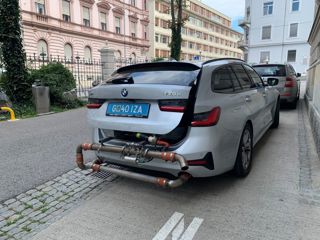The ongoing confusion over WLTP could provide fleet managers with the opportunity to prove their worth to their employer, an ICFM masterclass heard.
The introduction of the Worldwide harmonised Light vehicle Test Procedure (WLTP) has resulted in some vehicle manufacturers temporarily or permanently axing non-compliant models and delays in emission and MPG data being published due to the volume of models requiring homologation.
The ICFM masterclass, held at Fleet Live, heard that the added complexity has resulted in some organisations moving away from company cars in favour of giving staff a cash allowance, but this could prove to be an expensive mistake.
Operationally, the introduction of WLTP with all its ramifications on fleet policies and company car choice presented “a great opportunity for fleet managers to demonstrate their worth”, said Caroline Sandall, a director of ESE UK Consulting and deputy chairman of ACFO.
“Silence can be really dangerous and it will result in other people making decision and they may not be the best,” she added.
“Fleet managers are in unprecedented times so must use the opportunity to demonstrate their value.
“They must engage with company car drivers and management and ensure they are monitoring what is happening. It is about self-preservation and demonstrating what a great job fleet managers do.”
Urging fleet decision-makers to “translate WLTP into a message that is clear for company car drivers and management to understand, while also assessing the business impact”, Sandall said “best case and worse case scenarios should be considered”.
David Bushnell, principal consultant at Alphabet (GB), said that instead of risking employees opting out of company cars and into potentially “older, unsafe and inefficient vehicles with an increased CO2”, fleet decision-makers should introduce a four-point action plan:
- Adapt fleet policy - company cars remained an important tool for attracting and motivating employees; and review car choice linked to whole life costs, vehicle rental and CO2 emissions.
- Don’t delay company car orders - some fleets are known to have put a hold on orders pending tax clarity, but that could result in longer vehicle lead times in the future once re-ordering commenced with drivers incurring additional benefit-in-kind tax charges as they remained in “older company cars” longer. Instead businesses should defleet and switch to short/mid-term rental.
- Act ‘greener’ - review current company car choices to offer only those vehicles with the best WLTP emission performance. Fleet decision-makers should talk to motor manufacturers and their vehicle providers about model supply as “some manufacturers have risen to the WLTP challenge” and introduced new models with lower CO2 emissions than equivalent outgoing models. Additionally, policies around vehicle extras should be adopted for “certain cars” as WLTP testing took into account the impact of options on CO2 emissions, unlike the previous testing regime.
- Increase the fleet share of electric vehicles - continuously evaluate associated whole life costs on plug-in vehicles to establish the fiscal and operational benefits to replace petrol and diesel models. Simultaneously ensure that drivers charged plug-in hybrid electric vehicles so they were not simply chosen as a “tax-saving dodge” as the reality could result in higher fuel bills.






















Login to comment
Comments
No comments have been made yet.